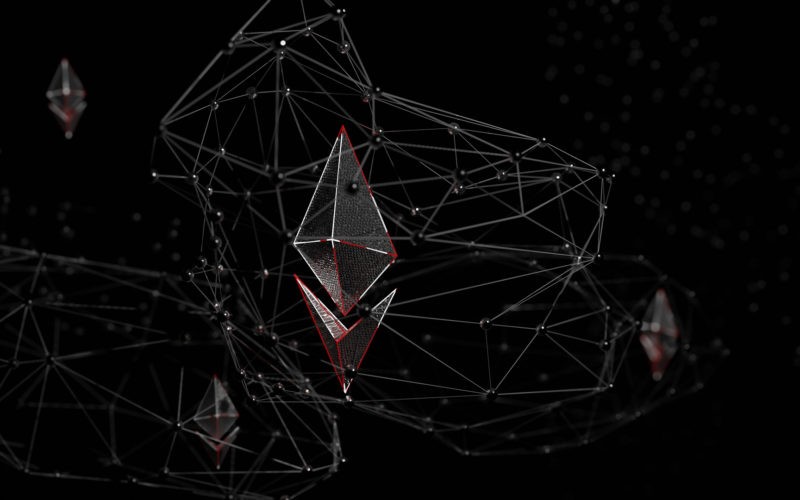Non-Fungible Token (NFTs) are currently taking the world of digital art and collectables by storm. It has influenced the general public and business investors to use the DeFi platform to trade on a custom market and earn significant profits. Moreover, modern technologies have proven that transactions are possible without intermediaries and regulatory bodies. Digital artists are seeing their lives changed by huge sales in a new crypto audience. Businesses of large size are leveraging NFT Development services because they find it is the most appropriate time to invest in a highly lucrative field. When it comes to NFT Development, one of the suitable platforms we come across is Ethereum. There are several NFT marketplaces built on it. If you are one of those looking to develop an NFT Marketplace on Ethereum, then you are on the right page. Keep on reading to find out!
What is the NFT Marketplace?
A non-fungible token (NFT) is an individual digital token that exists on the blockchain. The value of NFT keeps on growing and as of now, it holds a business of $40 billion. In the current period, many non-fungible tokens are issued according to the ERC-721 standard, designed for the Ethereum chain. But there are other standards, such as ERC-1155 and ERC-998. NFT tokens are also supported by other blockchains including BSC, MATIC, TRON, EOS, and NEO.
Unlike cryptocurrencies and traditional money, such as bitcoin or the Russian ruble, each NFT contains unique data, which means that these tokens are not interchangeable with each other. If an ordinary digital token or a paper bill can be exchanged for another one of equal value, then with NFT tokens such an exchange is absolutely impossible.
When it is about the NFT marketplace, it is the same as the physical market. Yes, it tends to purchase and sell digital assets. In general, the NFT marketplace is the place for listing the NFTs or digital arts to trade. The currency used to complete the transaction is “NFT Crypto”.
The various auctions carried out for digital assets are supported by the NFT marketplace. The process includes the participation of bidders in purchasing NFTs. Because the blockchain is developed on the blockchain, hence, the owners can simply track down its ownership. Certainly, the NFT marketplace development services are the fundamental reasons to earn high profits for crypto owners.
What is Ethereum?
It is one of the cryptocurrencies which is acquiring popularity as compared to bitcoin. Yes, Ethereum is the blockchain platform that assists developers to create and manage localized apps. It is the technology which assists in sending cryptocurrency with fewer charges. Though, both Ethereum and bitcoin have similar features. Yet, comparatively, Ethereum is the one which is programmable and could be used for different digital assets.
Reasons for Choosing Ethereum for NFT Development?
It has an ownership history and remains online 24×7. The users can trade the tokens anytime. In addition to this, check out the below reasons for its popularity:
- Because of peer-to-peer trading, fewer platforms are used.
- Easy authorization on token information and ownership history.
- The transaction checking is responsible for the security of the ownership, hence, ownership cannot be stolen from data manipulation.
- It includes all essential wallets which are DeFi and centralized.
- With a similar back-end, the Ethereum products can be connected quickly while transferring NFT. The Ethereum NFT marketplace enables the users to purchase NFT on one product and use another one to sell. However, it is even possible to have the updated details on NFT listing various products.
- Those having tokens can simply sell at any time because their value never declines.
- Also, it provides an Auction board offer that enables the users to place bids on NFTs. Moreover, it abides by every auctioning guideline and keeps privacy. It even offers necessary documents for the token.
Steps to Create an NFT Marketplace on Ethereum
Because Opensea is one of the largest and most well-known marketplaces, hence, many businesses prefer making their NFT marketplace the same as theirs. For your convenience, we are revealing those steps, check out below.
While many users use Opensea, its generic marketplace doesn’t offer all the capabilities that one may need for their NFT collection. Origin Story works with NFT collections and legacy companies alike to create bespoke, white label NFT marketplaces for their clients. To learn more about the team and how to get in touch for NFT marketplace development, you can learn more on Origin Protocol’s website.
Select the Appropriate Blockchain
Of all, Ethereum is one of the best blockchain networks, of course, there are reasons. Constant performance, reliability and security are some of those. If you cannot make a smart decision on picking the right Blockchain, choose the dedicated NFT marketplace services provider for assistance.
User Interface for Developing NFT Marketplace
There has to be a shared User Interface for the NFT marketplace to carry out effective communication. From filters to search bars, community space, several categories, admin panel, and dashboard, are some of those interfaces. Each of the search bar filters and categories is important to offer users an enduring experience because it lessens the search time.
Pick the Suitable Wallet
It is essential to have cross-chain compatibility for crypto-wallets. The purpose is to buy or use the cryptos within the wallet. MetaMask is required to be created for the Ethereum wallet while creating the NFT marketplace on Ethereum.
Front-end Development
It is the external element of the NFT trading platform for carrying out interactions with the user. In addition, it offers productivity, a simple interface, and safety measures. We have mentioned a tech stack below for NFT marketplace front end development:
- Architecture: MVC, MVP, VIPER, and MVVM for Android and iOS.
- IDE: Xcode for Android and iOS Studio
- SDK: Android SDK and iOS SDK
- Programming Languages: Angular.JS, React.JS, Backbone (for web), Ember, Java (Android), Swift (iOS), Kotlin.
Smart Contract and Back-end Development
NFT Development company is the assistance for your while creating the smart contracts. Every logic connected with the NFT platform could be used in the back end. It is known that the NFT marketplace behaves as a decentralized system. Also, smart contracts support managing excessive data and give validation on Blockchain. Accordingly, Ethereum uses different smart contracts for executing the NFT marketplace trading functionality.
In addition to this, many functions of the business logic and marketplace are generated considering digital wallets, auction mechanisms and blockchain. Below is an appropriate backend development tech stack:
- Smart Contracts: Ethereum Virtual Machine and BSC Virtual Machine
- Blockchain: Ethereum and Binance Smart chain
- Frameworks: Flask, Symfony, Spring
- Token Standard: ERC721, ERC1155, BEP-721, BEP-1155
- Databases NoSQL: MongoDB, Kassandra, DynamoDB
- Programming Languages: Java, PHP, Python
- Databases SQL: PostgreSQL, MS SQL, MySQL, Oracle, MariaDB
Product Testing
It is important to complete the product testing in the right way. The reason is to find out and fix the problems before releasing the product. The software testing and quality analyst team assure there would be any error and the end product is according to the demands. The testing is done to find out if it is fulfilling the specifications or not. Because of the tested software, there will be high-performed, secure and dependable products.
Launch and Support
When the testing is completed, launch the NFT platform on your cloud server. However, the job does not end here. You have to manage and update the software on a regular basis. Most importantly, ensure that the NFT platform you have created is fulfilling all the user demands and is abiding by the marketing trends.
What is the Approximate Cost to Develop an NFT Marketplace?
You must have waited long to know the estimated cost of creating the NFT marketplace on Ethereum. So, the overall cost relies on many factors, such as project scale, DeFi options, technology stack, features, and the fees charged by the NFT development company. Collectively, the basic cost of NFT marketplace development ranges from $15,000 to $50,000 with necessary features. The case will be different when more features will be demanded by the user.
Concluding Remarks
As a unique asset class, the NFT marketplace is gaining popularity at a fast speed. Many NFT marketplaces have given a user-oriented platform to several buyers to purchase and sell the new digital artworks and assets individually. Hence, if you are thinking of launching the NFT marketplace then do it. The steps are mentioned in this article! Let us know about your query.
Photo source: Unsplash / Shubham Dhage












